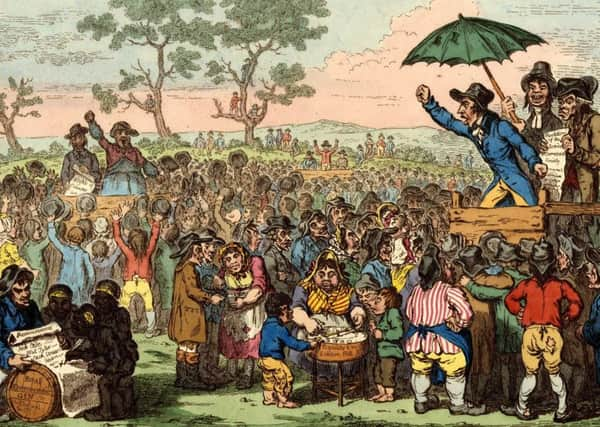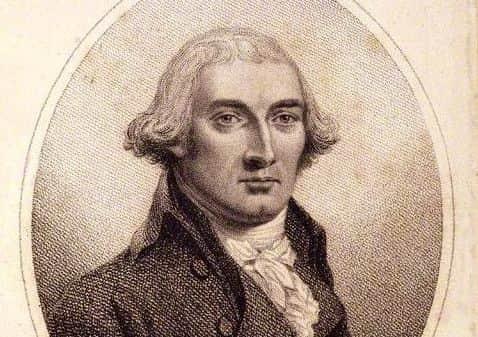Hardy '“ the radical shoemaker from Larbert


By contrast few will celebrate the birthday today, March 3, of a near contemporary of Burns who came from this part of the world and played a huge role in the battle for radical reform in Britain. The man was Thomas Hardy a shoemaker from Larbert and one of our greatest fighters for equality and justice.
I am very grateful to my friend Jim Jamieson who has not only reminded me of Hardy’s importance in radical history but provided me with much of the information in this article.
Advertisement
Hide AdAdvertisement
Hide AdThomas was born in Larbert in 1752 the son of a sailor. He went to the local parish school and was then apprenticed to his maternal grandfather who was a shoemaker. Having learned his trade he worked for a time in Glasgow but returned to Larbert to work at Carron ironworks as a bricklayer, presumably because the rapidly expanding company was offering relatively high wages.


While working on a house for Dr John Roebuck he was seriously injured and decided shoemaking was a safer bet. For a while he worked with John Wilson, a Scot who had come back from London, and the tales of the big city caught his imagination.
In April 1772 he took the 11-day sail on a Carron ship to try his luck. He had just 18 pence to his name.
After securing a position in the city Thomas settled down to build a new life and career and over the years that followed became involved in political activity. He was deeply influenced by the writings of Thomas Paine who had published a powerful attack on both the monarchy and ruling classes called ‘The Rights of Man’ which Burns had also read. At the time only a small number of powerful people had the vote and it was nearly impossible to bring about changes in the condition of working people.
Advertisement
Hide AdAdvertisement
Hide AdThe shoemakers were among the most radical and determined of the tradesmen and soon Thomas was campaigning for political reform in a very hostile atmosphere.


The French Revolution had scared the powers that be half to death and they came down very hard on all those who threatened the same thing in Britain.
When Thomas became secretary of the newly formed London Corresponding Society he became a number one target especially when the Society sent letters of congratulation to the revolutionaries in Paris.
In May 1794 he was arrested and charged with high treason and clapped in the Tower of London to await trial. While he was there a mob of thugs inspired by agents of the Government attacked his house and workshop breaking windows and doors.
Advertisement
Hide AdAdvertisement
Hide AdHis wife who was expecting a child was badly injured while trying to escape and died a few months later having lost the child.
Hardy was put on trial at the Old Bailey and after nine days the courageous jurymen found him not guilty. However, the pain of his loss proved too great and with oppressive measures against all radicals increasing, he decided to withdraw from further involvement.
He returned to his trade in a small way and lived to see the passing of the Great Reform Act in 1832 which he had done much to promote.
Today students of political reform place him high on the roll of those who transformed the voting system and set in train our journey to democracy.
Another Falkirk district export that helped change the world.